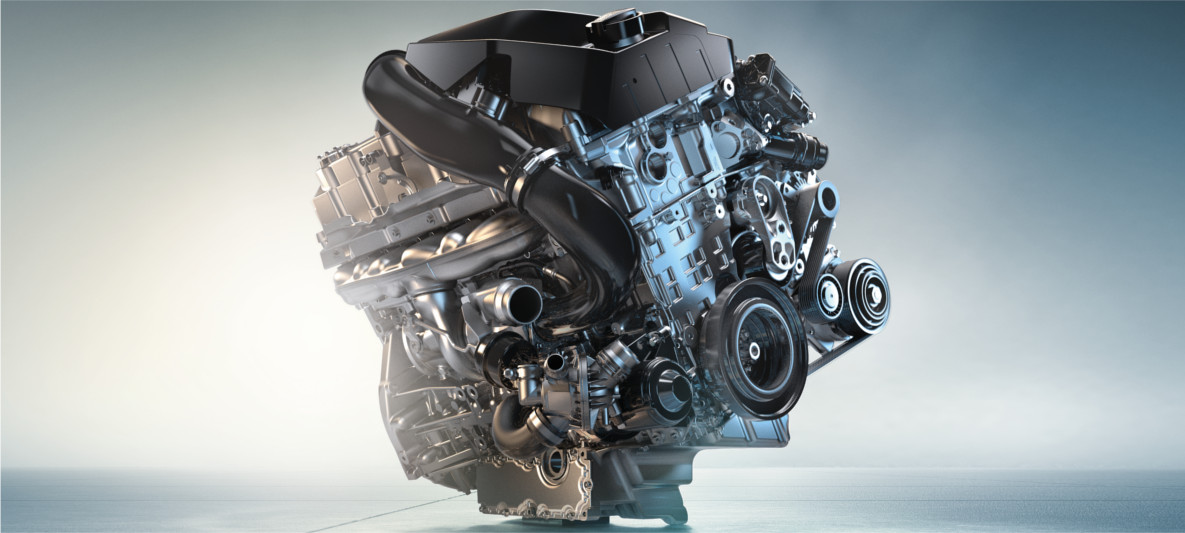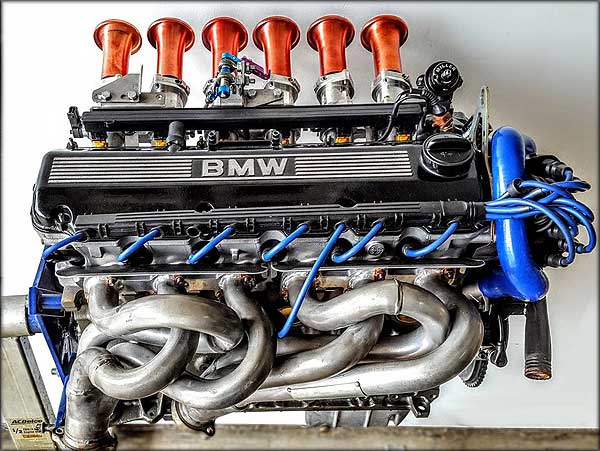A New user's Guide to Selecting the Right BMW Engine for Your Demands
A New user's Guide to Selecting the Right BMW Engine for Your Demands
Blog Article
Introducing the Intricacies of Next-Generation Power Units: a Deep Dive Into Advanced Engine Advancements and designs
In the realm of vehicle engineering, the relentless search of efficiency, sustainability, and effectiveness has pushed the development of power units to unmatched elevations. As we stand on the precipice of a new period in transport, the details of next-generation engine layouts bid us to explore the cutting-edge innovations and technologies that promise to redefine the driving experience. From sophisticated materials that press the limits of longevity and weight decrease to advanced turbocharging and turbo charging systems that raise power output to brand-new degrees, each component of these power devices holds an essential to unlocking the future of vehicle design. Diving deeper into the realms of exhaust control, smart engine administration systems, and the horizon of power unit advancement, we locate ourselves on the cusp of an improvement that assures to improve the landscape of flexibility as we know it.
Evolution of Engine Products

The shift towards progressed engine products has also allowed designers to create engines with higher power outputs while maintaining fuel effectiveness requirements. For instance, using lightweight products decreases the total weight of the engine, resulting in boosted fuel economic climate and reduced emissions. In addition, improvements in materials innovation have permitted better thermal management within engines, causing boosted dependability and long life.
Turbocharging and Supercharging Technologies
How do Turbocharging and Supercharging Technologies change engine efficiency and effectiveness in contemporary lorries? Turbocharging and turbo charging are innovations that significantly enhance engine performance by boosting the amount of air intake into the burning chamber. Turbocharging attains this by utilizing a turbine driven by exhaust gases to pressurize the intake air, while turbo charging uses a belt- or chain-driven compressor to attain the very same impact.
These innovations make it possible for smaller sized, a lot more fuel-efficient engines to create power equivalent to larger ones, known as downsizing. By forcing even more air into the cylinders, turbocharging and supercharging boost combustion performance, causing raised horse power and torque output without a significant rise in engine dimension. This leads to much better velocity, pulling ability, and general driving efficiency.
Furthermore, supercharging and turbocharging add to improved fuel efficiency by permitting the usage of smaller sized engines that eat much less gas under regular driving problems - bmw engine. This mix of improved efficiency and effectiveness has actually made turbocharging and turbo charging integral parts of many modern engine designs
Discharge Control and Environmental Effect
With boosting global issues pertaining to air top quality and ecological sustainability, the application of discharge control technologies in lorries plays an essential duty in lowering damaging contaminants released into the atmosphere. Modern lorries are geared up with sophisticated emission control systems that assist reduce the ecological impact of automotive procedures. Catalytic converters, as an example, are designed to convert harmful gases such as carbon monoxide gas, nitrogen oxides, and hydrocarbons into much less harmful materials like carbon dioxide and water vapor.
In addition, innovations in engine modern technology, such as the assimilation of exhaust gas recirculation systems and selective catalytic decrease, have dramatically added to lowering emissions. These technologies operate in tandem to optimize combustion performance and minimize the launch of why not find out more hazardous contaminants into the air. Furthermore, the advancement of hybrid and electrical vehicles represents a crucial step towards lowering the general ecological impact of the transport market.
Intelligent Engine Management Equipment

Additionally, these systems enable vehicles to meet rigorous emissions requirements without compromising performance, offering a much more eco-friendly driving experience. The combination of man-made intelligence and machine learning capabilities in engine administration systems remains to push the limits of what is possible, leading to more enhancements in effectiveness, integrity, and overall vehicle efficiency. bmw engine. As vehicle innovation breakthroughs, intelligent engine monitoring systems will play a vital role fit the future of transport towards a more sustainable and efficient instructions
Future Trends in Power System Advancement
As intelligent engine administration systems lead the means for enhanced control and optimization in modern automobiles, future fads in power unit growth are positioned to redefine the landscape of auto propulsion modern technologies. These different power sources use enhanced effectiveness and performance while straightening with strict environmental laws.
An additional considerable pattern is the integration of sophisticated products and making techniques. Light-weight materials such as carbon fiber and light weight aluminum are being made use of to minimize total vehicle weight, enhancing gas effectiveness and performance. In look these up addition, developments in 3D printing and additive production are allowing the manufacturing of complex engine components with greater precision and sturdiness.
Additionally, expert system and device learning are playing a vital role in enhancing power unit performance. These innovations permit real-time surveillance and flexible control, leading to extra dependable and efficient power distribution. On the whole, future patterns in power device advancement are tailored towards efficiency, effectiveness, and sustainability, driving the automotive sector towards a new period of propulsion modern technologies.

Verdict
In conclusion, the advancements in engine products, turbocharging, discharge control, and intelligent monitoring systems have led the means for next-generation power units. The complex layouts and technologies in modern-day engines display the ongoing advancement of vehicle innovation.
Discovering the progressive innovations in engine materials has been essential in enhancing the efficiency and efficiency of modern engines. Over the years, the advancement of engine materials has played an important role in pushing the boundaries of what engines can achieve.The shift towards progressed engine materials has also allowed designers to develop engines with greater power results while preserving fuel efficiency criteria.The application of smart engine administration systems in modern lorries has transformed the way engines are controlled and maximized for efficiency and efficiency. By gathering data in real-time and analyzing it with innovative algorithms, intelligent engine management systems can adapt to driving designs, ecological factors, and engine health to make best use of power result while reducing fuel usage and exhausts.
Report this page